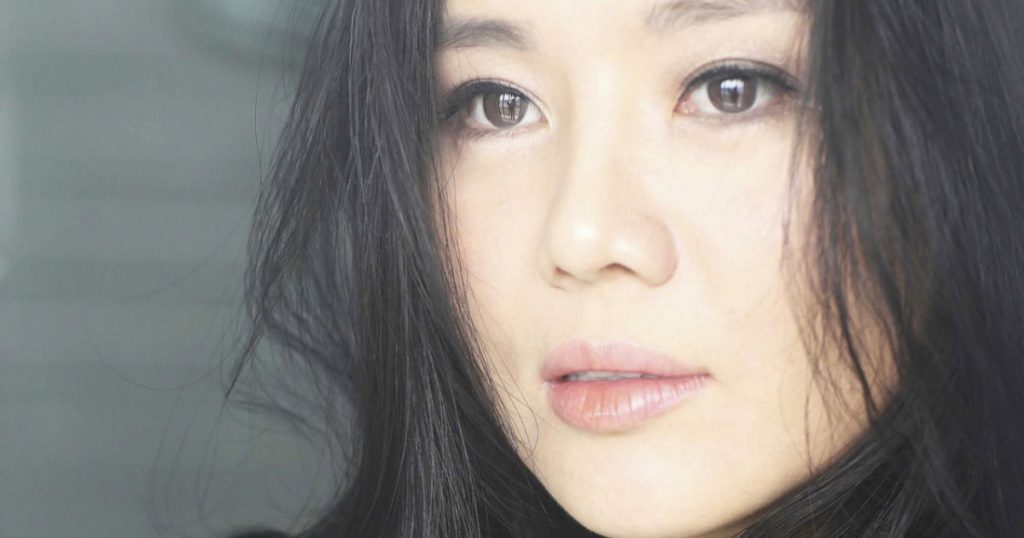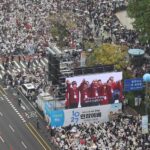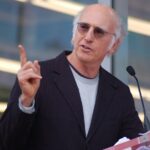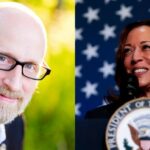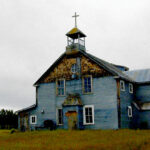Blog Post
Public executions and religious persecution: An inside look at life inside North Korea
By Jonathon Van Maren
Growing up, Hyeonseo Lee was sure she lived in the best country in the world. Her family seemed well-to-do, and she was very patriotic—she knew the song “Nothing to Envy” by heart. She remembers vividly the moment she realized that not everything was as it seemed. It was the crippling famines of 1994-1998, when between 240,000 and 3.5 million people died of starvation. It was then that Lee finally realized that North Korea might not be what she had been told it was.
She had witnessed public executions from a very young age, but it was the scenes of suffering and dying in the wake of massive food shortages that seared themselves into her memory. Outside a train station, she saw “a woman…lying on the ground apparently dead, with a starving child in her arms staring at her face. Nobody helped them, because they were so focused on taking care of themselves and their families.” Her mother received a letter from the sister of one of her colleagues which stated that, “When you read this, all five family members will not exist in this world, because we haven’t eaten for the past two weeks.”
To many North Koreans, Lee included, this disaster was an indication that their Dear Leader—Kim Jong-il at the time—was not capable of all that he said he was. Although the subjects of the Hermit Kingdom were largely unaware of the causes, it was economic mismanagement (augmented by the collapse of the Soviet Union) and a series of droughts and floods that triggered the famines, and North Korea’s government was simply unequipped to respond effectively. Their incompetence and the fragility of their regime was abruptly exposed: They could not even prevent their own people from starving to death in the streets.
In 1997, with the famine still underway, Hyeonseo Lee fled the country, crossing the Yaku River with the intention of obtaining a college education in China and returning. Instead, she ended up living in hiding under several different false identities in China for a decade before entering South Korea and applying for asylum-seeker status. Upon finding that her family was suffering enormously for her escape, she returned to China to help her family escape North Korea as well, eventually assisting them on a more than 2,000-mile journey though Communist China. The escape was rife with danger, and she had to pay several bribes when family members were arrested. In the end, they reached South Korea and safety at last.
In 2015, she published a memoir titled The Girl with the Seven Names, detailing her experiences growing up in North Korea and the details of her harrowing escape. She was kind enough to join me to discuss life inside the Hermit Kingdom.
What was it like to grow up in North Korea? According to your memoir, you have some very mixed feelings.
Actually, until I knew the real world, until I knew the outside world outside North Korea, my country was paradise, although we suffered a lot. I didn’t know that we were suffering because I never tasted freedom or democracy, and I could compare no country with my own country. So, we had really an oppressed life, we lived like in a prison. Since we did not know anything about the outside world and the regime told us that we were the most happy human beings, that’s what we just believed.
Because we were a divided country, separated [from] South Korea, the regime told many bad things about the outside world, like America or capitalist countries–that there are many dying in hospitals, or there are people who can’t pay for their tuition so they can’t go to school, they didn’t even know what a school looked like. Or we were shown pictures where people had no shoes or clothes, and they were wandering in winters. Whenever we saw that, we felt that we were really lucky to have the Dear Leader because at least I had a shoe and we didn’t have to suffer that much, [and] we were not suffering under the colonization of America. The regime told us that the reason for poverty is that America is colonizing, and that they are killing innocent people. That’s why we were so proud of being born inside North Korea.
You write in your book about how North Korea bred paranoia and cultivated a culture of informing on your neighbors, reporting these tiny infractions, but that because this was normal you still felt as if you had a normal childhood.
Yes, as I said, everything in North Korea that was normal, I later found to be totally crazy, because [I grew up in an] environment where we witnessed public executions, and whole families disappeared in middle of a night if they made a mistake by saying wrong things. So, I experienced my friend’s father’s whole family disappearing in the middle of the night because he had said something wrong. It felt horrible. Even when I was young, my mom told me that I should be careful about what I am saying outside and to not repeat the words that I hear at home. Usually because kids made a mistake of repeating the words outside that they heard at home and caused big problems.
That’s why in North Korea we couldn’t trust anyone. Even between husband and wife, because at the divorce they could tell the government about the other person’s behavior. We could only trust parents and siblings, that’s all. The environment made us like that. We have a self-criticism sessions in North Korea, I guess the only country to have this ridiculous system. Every Saturday all of the country from the school kids to [the] grandmothers, every farmer, every company, every diplomat, every person has to attend this session every Saturday as [a] North Korean citizen. During this we have to criticize each other, we must criticize. Instead of giving other people compliments or kindness–we never learnt that–we learnt only to criticize each other. If I don’t criticize other people then I would get into trouble, so we must criticize. During that session we learnt that if we saw something that is not correct, we have to tell this to the government. We thought that’s the way you are loyal to the government. That’s why we never felt guilty. In that environment we were completely ignorant.
You wrote that public executions were mandatory even for the children?
Yes, I witnessed my first public execution when I was seven. Actually, it was quite early age. I didn’t even know when I saw it that it was a public execution, because I never knew about that. It was [my] first experience, and then I was just shocked to see that a man was hanging by his neck under a road bridge. In North Korea we have a lot of shooting in public executions. At that time I saw it was hanging, but now I assume that by this time hanging must have disappeared. The regime was often worried that not many people [would] attend public executions–the reason that they are having public executions is to show people that if you make same mistake or if you are against the regime or government you will be killed in exactly the same way. That’s the message they wanted to [send].
That’s why they made it mandatory for every school, every company to watch these public executions. Many people were killed for many absurd reasons, like a person who killed a cow, or a person who stole a rice from a factory or a farm to feed his family, smugglers, fortune-tellers, homosexuals, and defectors like me. People who saw the public executions were usually terrified. Right now when [the] regime kills people they are using rifles, and also machine guns. What I saw was a rifle at a time. It’s insane. Many people fainted at the sight. These public executions kept constantly reminding people that I should not do anything like this or I will be killed.
What sort of things could get you executed in North Korea?
These days they are killing a lot of high-ranking officials. It’s not a very different story, even during Kim Il Sung and also our second dictator Kim Jong Il, we also saw that they killed many high-ranking officers. The regime, when they kill high ranking officials, they kill on purpose with all pain on their body. Because, for example in 1995, during mid-1993, we had a big famine in north Korea and many people suffered. The regime had to kill somebody to put all the blame on somebody, and they killed in public execution the Minister of Agriculture in North Korea, and then they said that the reason farms in North Korea didn’t have much productivity, the reason was him, and he was a southern spy. He put something destructive in the farms, so we have the situation right now that everyone had to suffer. Then people believed it was crazy that such a high-ranking official [could] be a spy.
Even today, they put all guilt on somebody and then that person is executed. These days they are also killing defectors, including defector’s family. Defectors who are caught in China are not executed in public–the ridiculous thing is that they can be tortured and imprisoned and then the worst thing is that they can be sent to political prisoner camp. The defectors who are caught on their way to South Korea, it’s obvious that they are trying to go to South Korea and not China, then there is no doubt that they will be in political prison camps and then public execution. So that’s the situation and the Chinese government keeps sending defectors back to political prisoner camps.
It has been reported in the news over the past couple of years that Christians in North Korea are being executed for owning Bibles. Of course, religion in North Korea is quite rare. Did you know anyone in North Korea who was religious?
When I was growing up, we never knew about religion. I didn’t know that religion existed in this world. I didn’t know who God was. I thought that God was Kim Jong Un or Kim Jong Il–not only me, all the citizens [did]. I think more than 90% [of] citizens believed them to be god. Then, they were all gods. Sometimes we saw foreign movies. The regime sometimes showed us Chinese movies, or Indian movies, or sometimes some outside movies. And then they would cut a lot of scenes; if there were lot of God or cross symbols or love scenes, they were cutting them in middle of the movie. So we could see clearly that [a] movie scene was cut out and then connected with different scene.
It’s really common, so that’s why when I came in 2008, even though I lived in China for ten years, but when I arrived in south Korea, I saw a lot of Red Cross signs on the top of the buildings, a lot of Red Cross signs. I [thought], that’s the only sign that showed in North Korea, the hospital sign. That’s why I thought why there are so many hospitals in South Korea; too many, I found. Later, I found that they were not hospitals, they were churches.
We didn’t know anything about religion, but some outside people knew that in North Korea, we have some fake churches in Pyongyang that are made by the regime for the propaganda to show a different side to visitors: That they have freedom of religion, that we have Christianity. In essence, all the workers there were North Korean agents, seriously trained. Some of the outside people got confused; they thought that they are real churches. How naïve. We told them that they are not real churches. This is the reality.
You say that you grew up in North Korea during the famine in the early 1990s, and yet you say that some of your happiest memories are from North Korea. How did you manage to stay happy going through such awful time?
Because I didn’t suffer personally. In North Korea we have a sort of hierarchy system, so from the moment I was born I realized that I was lucky [with my] nice family background. So it depends, because of our grandparents’ background. We were divided into three different classes inside North Korea.
That’s why I feel like why other people suffered and I didn’t. I didn’t see that problem that much but when we had big famine from 1995, [at] that time I saw so many people were suffering, even some of my friends, at that time I slowly began to learn the reality inside North Korea. I was really sad to see that. Even in 1997, I saw people dying on the street. And I’d [read of] people dying in the movies or novels but I could never imagine that people in my country can die of starvation.
So that’s the main reason that made me cross the border to China, because as I said in my book, I read a letter from a woman whose five family members were dying of starvation. They didn’t have food for weeks. It was the first time for me, it was really shocking for me. Then I saw the mother and baby dying in front of the train station. I was living just next to the border. The border town [was] usually [a] nice life compared to other people, especially because of my father and mother’s job, I never experienced money problems. I was living on the border just next to China, [and] our televisions could pick up Chinese signals and then I watched, even though it’s illegal in North Korea–if you are caught you will be severely punished. It completely transformed my life. To me China looked awesome, much more rich than North Korea. While I saw people dying in street, at night from the Chinese TV what I saw was completely colorful and different.
And even [though] I was living right next to the border, we had lots of power shortages. We were living in blackout at the time. Even today nothing has changed. China never had power shortages. Every night they had light, including street light. So everything at that time changed, while many people left the country [due to] starvation because they knew that if they lived here they would die. So die in North Korea, or die while crossing or die in China—it was not a big difference for them. But I wanted to see the differences. I don’t know If what I saw on Chinese TV was real or fake, [but] because of watching Chinese TV there was a strong desire to see the outside world and it made me cross the border. But at the time I did knew that It would be the last meeting with my home town and that I would be separated from my family for so long.
How did you escape North Korea?
Most defectors crossing the border have to take huge risks with their life. I even saw, living next to the border, that some people drowned in the water and the dead body was flowing down the river during the famine, and if we [went] early in the morning to the border because my home was right next to the border and opened the door, we could see that dead bodies were covered with straw bags. I crossed the border during the winter time. We had a frozen river, so I [could] cross the river to China. The military border guards were guarding the area very severely, [but] because I was living right next to the border, we had a really good relationship with border guards, they were like my uncles or elder brothers.
They slept in our house, we shared meals together, it was like a family. They could never imagine that I wouldn’t come back to North Korea. Even I couldn’t imagine [that]. So it was really easy compared to other defectors, but as I described in my book, when I crossed, at that moment I wore very fancy shoes. I didn’t know at that time the meaning of escaping the country, or refugee. Because we never learnt those words, like human rights, democracy, freedom, refugee. I thought I would be coming back soon, but that was the last meeting. Then I crossed the frozen ice.
And how did you get your family out? Once you got out of China, you decided to try your mother and brother get out. How did that happen?
Yes, because I had been separated from my family for [so] long, although I had a difficult life for my long journey. It’s like roller coaster. The reason [I] did not give up in the long journey, [was] because of the hope [of] meeting my family one day. So in 2008, when I finally found my freedom by seeking asylum in South Korea, then I just learnt that my family had many problems because of me. My mom’s friend was spying on her for six years–she was reporting everything about my mom; daily life, daily schedule. All [the] neighbors were spying on my mom, so my family was like in prison. My mom always told me she was [very] stressed living in such an environment and because [they were] defector’s family members they had severe problems. They were under threat to be sent to the countryside near the mountains, where it is extremely difficult to survive. In the year 2009, we had the same problem: my family’s name was on the list to [be] banished to countryside, which means leave and die in the mountains. They can’t survive.
So at that time I took huge risk by bringing them out. The second reason was that I wanted to show my mom and my family that there was another world in this world, a beautiful free world. I just wanted to show them, that’s why I made this huge decision. It’s not easy for us–we are not travelling to the next city [or the] next province. Actually, you know, when I was writing this book, the most difficult part for me was when I described how I took my family out of North Korea, because this story is not like 15 years ago or 20 years ago. It’s just a few years ago to me. Every single step in China was so painful to us, because the Chinese government severely watched, searching for North Korean defectors in every bus, taxi or in the trains. If we were caught, we obviously knew what was going to happen to us because I [had a] South Korean passport at the time so if I was caught, I would be publicly executed inside North Korea, and because of me my family would be in political prison for their entire lives. We were painfully aware of the situation. Every single step was like being killed when we encountered Chinese police. I felt like if I died myself, its ok. But I can’t see my family have problems in front of me. We are lucky that we united, but what if were unlucky like other defectors who are caught? Because most of the defectors are caught in China, and then they are in huge trouble. That’s why it’s a painful memory.
One final question. Moving from North Korea to rest of the world, what was the hardest thing to get used to?
To get used to democracy, freedom, [and] capitalism is really the most difficult thing for all North Korean defectors, because we grew up in a Communist society, which is completely controlled by the regime. We never had any freedom. We never made any decisions for our life–all the time the regime made [decisions] for all North Korean citizens. So we lived like human robots, we just go there, go here. But when North Korean people have freedom like in South Korea, we don’t know where to go because we have never tasted so much freedom. That’s why when we have so much freedom, suddenly we don’t know where to go, because we need somebody’s hand to help to give us a direction because we were never trained to make a decision ourselves. Suddenly we come from communism to capitalism and the economy that is huge. Many people don’t even know how to use a subway, they don’t even know how to take a bus. That’s the real issue for North Korean defectors. So, my answer is we never enjoyed freedom. We need a lot of time to get used to it. That’s why now many North Korean defectors in South Korea are having hard time.
But what makes things most difficult is the prejudice. We were separated from South Korea for seven decades, and for that time North Korean people were completely forgotten by South Koreans, and then [when] we arrive in South Korea, we kind of become outsiders. And that’s why many North Korean people, when looking for jobs, have to hide their identity even in South Korea. This is the reality right now, so that’s what makes it difficult and that’s why suicide rate in North Korean defectors is so high when compared to ordinary South Korean citizens. It’s hard for me, because it’s hard for North Korean citizens to get freedom. We know how difficult it is to get to South Korea–we have to give everything, even our life. But the reality in South Korea is very different, and therefore many people get depressed and then some of them [commit] suicide. I feel really sad for the reality, but as times goes by, right now the situation is getting better. Until a few years ago people thought that North Korean people are horrible, but right now, because more North Koreans want to share their story, and when they hear our story, they are crying with us because they know how hard it is for us to get to freedom and they feel sympathy. Yes, the situation has changed from past–but not completely.


